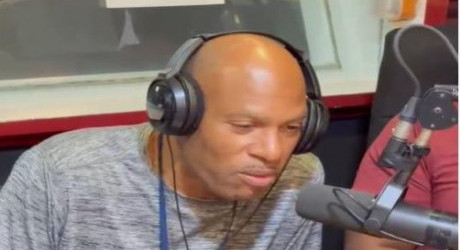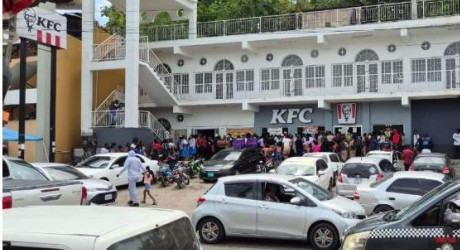The United Church in Jamaica and the Cayman Islands has reaffirmed its opposition to same-sex marriage, an issue that has taken on greater urgency in the Cayman Islands.
The Church, which held its 41st Synod in Montego Bay from April 30 to May 2, issued a statement on this and other pressing issues facing the two nations, arising from the deliberations, including crime and reparations.
On the contentious issue of sexuality, it noted that the Cayman Islands faces “the daunting issue of the legalization of same-sex marriage.”
“This bears heavily on the practice of ministry, and the life and culture of congregations. The emotive issue affects spiritual and family life, causing even trepidation in many persons in the Cayman Islands and other parts of the Caribbean Region,” the statement read.
In that regard it said the United Church “affirms the biblical belief that marriage is between a man and a woman, and that parents are male and female.”
SOE
Regarding the recent imposition of the State of Emergency in the western Jamaica parishes of Westmoreland, Hanover and St. James, the United Church conceded that it was “a strategy of immediate need,” but asserted that this was “not a sustainable mechanism for purging the society of this malady.”
The Synod therefore appealed for what it characterised as “a comprehensive crime plan by the Government, a re-ordering of the society, and the equipping of our Security Forces to investigate and apprehend evildoers, leading to conviction, punishment, and justice.”
Reparations
Regarding the emerging issue reparation for slavery, the United Church noted that these societies were established on a sinful premise.
Accordingly, it says “the Synod has committed to engage and support local and international efforts towards reparations for the centuries of enslavement of African people in the region.”
The global reparations movement has been given significant momentum by the activism of the region, Caribbean Reparations Commission, which was established by CARICOM in 2013 with a multi-pronged agenda for reparatory justice.
Later that same year the 14 CARICOM countries initiated legal action against the United Kingdom, France and the Netherlands for reparations for the wrongs of slavery. The amount being demanded could reportedly run into hundreds of billions of pounds. That matter is still pending.
The full statement by the Synod is below
The 41st Synod of the United Church in Jamaica and the Cayman Islands convened at SeaGarden Beach Resort, Montego Bay, Jamaica, from April 30-May 2, 2019, and agreed on specific approaches to burning, topical issues in our two (2) nations.
In the Cayman Islands, the nation faces the daunting issue of the legalization of same-sex marriage. This bears heavily on the practice of ministry, and the life and culture of congregations. The emotive issue affects spiritual and family life, causing even trepidation in many persons in the Cayman Islands and other parts of the Caribbean Region.
The United Church affirms the biblical belief that marriage is between a man and a woman, and that parents are male and female.
Even as we wrestle with the scourge of crime and violence in Jamaica, we are reminded of 1 Peter 3:11, which states: “They must turn from evil and do good; they must seek peace and pursue it.”
The many incidents of violent crime have led to the declaration of States of Emergency, the latest being in St. James, Hanover, and Westmoreland. The Church affirms this initiative as a strategy of immediate need, but recognizes that it is not a sustainable mechanism for purging the society of this malady. The Synod therefore calls for a comprehensive crime plan by the Government, a re-ordering of the society, and the equipping of our Security Forces to investigate and apprehend evildoers, leading to conviction, punishment, and justice.
This Plan should call for renewed focus on Values and Attitudes, and encourage such programmes across all schools. We must reclaim our boys, affirm their personhood and guide them in their identity-formation. We must teach our children their inherent value and self-respect, and guide them in godly choices and behaviour. Indeed, as Christ’s followers, we effect change through partnership with God, being cognizant of the fact that “the weapons we fight with are not the weapons of the world. On the contrary, they have divine power to demolish strongholds” (2 Corinthians 10:4).
The UCJCI is also dedicated to the cause of erasing the blemish of domestic violence in our two (2) nations. In Jamaica, approximately thirty percent of ever-partnered women aged 15-49 years, experienced intimate partner physical and/or sexual violence at least once in their lifetime, according to a study published in 2018. Further to this, four hundred and fifty (450) people lost their lives as a result of domestic violence between 2006 and 2016. Men, too, are sometimes victims, and many suffer in silence. Children have been scarred and traumatized as a result of these violent incidents between adults, and sometimes carry the emotional wounds for life.
An integral part of the Church’s mission is the protection of the welfare of family life, and the UCJCI is committed to being a pastoral presence for families. The Church will explore possibilities for partnership in a programme of family life education. The areas of focus will be: parenting education and training, reduction of child abuse and trauma, conflict resolution training, and marital and relationship health. The respect for family values, as defined by Christ, and the protection of all children from abuse and neglect were affirmed by the Synod.
Historically, corruption has discoloured the fabric of our society, attacking various facets of our lives. Jamaica ranked 70 out of 175 countries in corruption perception in the public sector in the 2018 Corruption Perceptions Index. This longstanding issue has marred our political, social, and economic landscape, and exists at all levels of the Jamaican society. The 41st Synod reiterated the call to arrest this issue with a new fire, and the fervent will to better understand its root causes and effects, and identify the solutions to this scourge.
Slavery society was also established on a similar sinful premise as above, and the Synod has committed to engage and support local and international efforts towards reparations for the centuries of enslavement of African people in the region.
The 41st Synod of the United Church in Jamaica and the Cayman Islands stands ready to partner with the relevant authorities and civil groups, and strengthen the efforts of the Church to realize these desired outcomes.








 All feeds
All feeds







